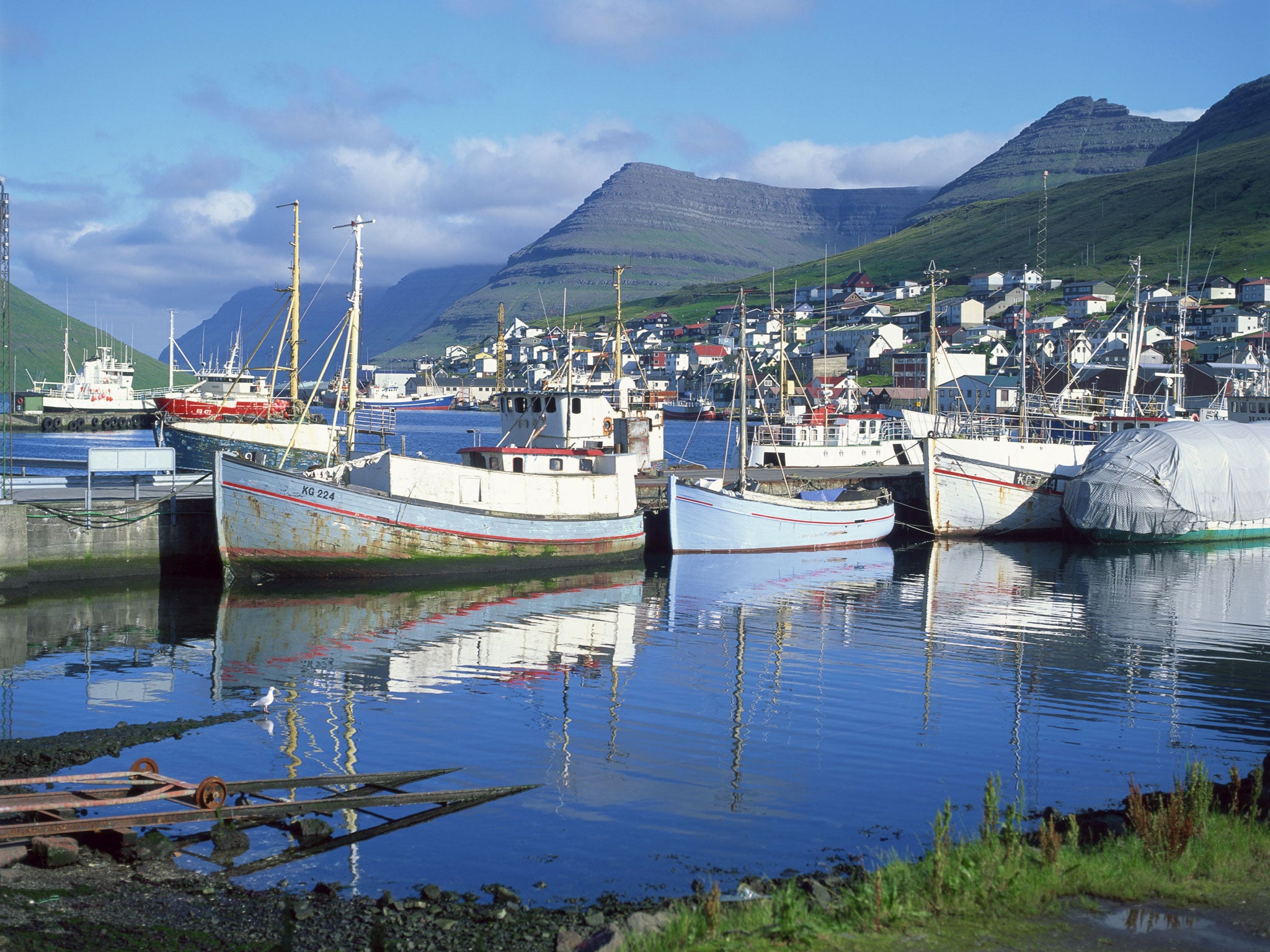Faroe Islands face trade sanctions over fishery quotas
Tiny North Atlantic nation repeatedly defies EU over herring and mackerel quotas

Your support helps us to tell the story
From reproductive rights to climate change to Big Tech, The Independent is on the ground when the story is developing. Whether it's investigating the financials of Elon Musk's pro-Trump PAC or producing our latest documentary, 'The A Word', which shines a light on the American women fighting for reproductive rights, we know how important it is to parse out the facts from the messaging.
At such a critical moment in US history, we need reporters on the ground. Your donation allows us to keep sending journalists to speak to both sides of the story.
The Independent is trusted by Americans across the entire political spectrum. And unlike many other quality news outlets, we choose not to lock Americans out of our reporting and analysis with paywalls. We believe quality journalism should be available to everyone, paid for by those who can afford it.
Your support makes all the difference.The Faroe Islands could become the first nation to suffer trade sanctions under new European fishery laws.
The tiny nation, a group of 18 islands in the North Atlantic between Scotland and Iceland, has repeatedly defied the European Union over herring and mackerel quotas and now faces economic retaliation. New laws were created by the EU last year to allow it to impose sanctions in the event of disputes over fish quotas and the Faroes have now been officially notified that trade penalties are being considered as part of the so-called “herring war”.
Ministers for the Faroes have been given a few weeks to respond but if they refuse to back down they face a range of sanctions that could include a ban on all fish products from the islands being imported or landed in the EU.
The UK led calls for economic retaliation this month at the Fisheries Council when European ministers agreed sanctions against the Faroes should be pursued by the European Commission.
Richard Benyon, the UK Fisheries Minister, welcomed the step: “I support the commission in taking the first step towards applying trade sanctions, following the request I made to discuss this last week. I hope the Faroe Islands adopt a more reasonable position and I remain prepared to support trade sanctions if they continue to behave irresponsibly.”
It is the first time the sanctions process has been invoked and, unless a compromise over quotas can be found, it is likely to hit the Faroe Islands especially hard.
Fishing is the main industry on the North Atlantic archipelago and accounts for more than 95 per cent of its exports – about 20 per cent of the gross national product.
In a statement, the European Commission said “the sustainability of the [herring] stock is highly compromised and its recovery possibilities largely diminished” because of the Faroes. It said: “The European Commission has notified the fisheries authorities of the Faroe Islands of its intention to adopt measures in support of the sustainability of herring fisheries shared with the Faroe Islands.
“The measures may include restrictions in the imports of herring and associated species fished by Faroese interests and restrictions on the access of Faroese vessels in EU harbours except for safety reasons.
“This commission action aims to ensure sustainability to avoid a collapse of the stock which would mean that many fishermen and their families would lose their income.”
Mackerel quotas have been a source of conflict for several years with Iceland and the Faroes demanding a greater share, arguing that they were entitled to more because climate change had altered the migration patterns so that more of the fish reached their waters.
The Faroes intensified the dispute when it pulled out of an international agreement on the Atlanto-Scandian herring stock. A total allowable catch of 619,000 tonnes was set for the declining herring fishery for 2013 and the Faroes were offered 31,940 tonnes but awarded itself a 105,000-tonne quota, 145 per cent higher than its 2012 quota. Other nations accepted a 26 per cent cut to protect the stock. For 2013 the Faroes awarded itself a 159,000-tonne mackerel quota, up from 148,000 last year.
Join our commenting forum
Join thought-provoking conversations, follow other Independent readers and see their replies
Comments